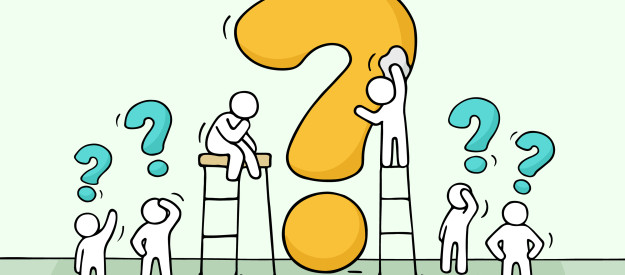"We are losing our attitude of wonder, of contemplation, of listening to creation and thus we no longer manage to interpret within it what Benedict XVI calls 'the rhythm of the love-story between God and man.'"
+ Pope Francis
The charitable response to (climate) denial

At a time with more access to information than any other in history, division about what is and is not true is only growing.
This has been a longtime reality for those of us engaged in climate education and advocacy. What should be a straightforward assessment of facts is often anything but. Camps arise—usually along predictable, political binary positions—which leads to heated tempers and strained relationships.
But why? How can our evolved minds, now with so much access to so much data, be so divided—so much so as to create absolutely divergent versions of reality?
Adrian Bardon, a professor at Wake Forest University, tackles these questions in his book The Truth About Denial: Bias and Self-Deception in Science, Politics, and Religion' (Oxford Univ. Press 2020), as well as in this 2020 article in The Conversation, in which he writes,
In theory, resolving factual disputes should be relatively easy: Just present strong evidence, or evidence of a strong expert consensus. This approach succeeds most of the time, when the issue is, say, the atomic weight of hydrogen.
But things don’t work that way when scientific advice presents a picture that threatens someone’s perceived interests or ideological worldview. In practice, it turns out that one’s political, religious or ethnic identity quite effectively predicts one’s willingness to accept expertise on any given politicized issue.
“Motivated reasoning” is what social scientists call the process of deciding what evidence to accept based on the conclusion one prefers.
And, it turns out, such motivated reasoning isn’t new.
The human talent for rationalization is a product of many hundreds of thousands of years of adaptation. Our ancestors evolved in small groups, where cooperation and persuasion had at least as much to do with reproductive success as holding accurate factual beliefs about the world. Assimilation into one’s tribe required assimilation into the group’s ideological belief system – regardless of whether it was grounded in science or superstition. An instinctive bias in favor of one’s “in-group” and its worldview is deeply ingrained in human psychology.
A human being’s very sense of self is intimately tied up with his or her identity group’s status and beliefs. Unsurprisingly, then, people respond automatically and defensively to information that threatens the worldview of groups with which they identify. We respond with rationalization and selective assessment of evidence – that is, we engage in “confirmation bias,” giving credit to expert testimony we like while finding reasons to reject the rest.
Having had my share of difficult conversations with close friends who deny the science of climate change, or that life begins at conception, I do find hope in those few times where I’ve witnessed small epiphanies, where the needle of acceptance budged—and in those instances, I credit two important realities. Trust and honest dialogue.
Bardon is correct to conclude that “we must not ignore what the science tells us about science denial.” Knowing what motivates our conversation partners will help us understand them. But this understanding will only lead to fruitful conversations if first, they trust us—if they see us as something other than “other.”
In other words, we need not be held prisoner of our primeval, tribal instincts.
I wrote about this from two perspectives in 2017 (for those on the left seeking to communicate with those on the right, and vice versa.) This was just about the two-year anniversary of the Holy Father’s eco-encyclical Laudato Si’. It was clear by then that the hoped-for, universal rallying to address climate change wasn’t going to happen and many of my fellow Catholic climate educators/activists despaired.
But many of us still had hope—hope not in us, but in that charity and truth that will win out in authentic dialogue, as Pope Benedict XVI championed in his 2009 encyclical Caritas in Veritate.
When exploring and offering truth, charity needs to be in the equation. We must love our neighbors even when they annoy us. Only beginning in a place of love—of charity—can true relationships develop and trusting dialogues arise.
And so, before diving into a topic that will likely be one of disagreement, first find commonalities. Affirm the connections you have with your conversation partner. Ask sincere questions that can help you know them. Perhaps you both root for the same football team or are both Star Wars fans. Connect with what you have in common—help your conversation partner see you as “one of us” so that when a disagreement arises, you’re less likely to be shut down as simply “one of them.”
And remember, trust requires time, so don’t rush.
Last, keep in mind that science shows that when conversing, people can synchronize heartbeats and breathing rates. And so, when one can achieve the skill of remaining calm in the storm of disagreement, chances are your conversation partner will too.
And so, onward we must go in this bitterly divided world. One calm conversation at a time. One trusting relationship at a time.
As we well know from our Catholic faith, life thrives only when we communicate sincerely and build relationships, when we offer charity and nurture trust. Indeed, isn’t that our shared calling as human beings? To journey together to learn the truths of this world and ultimately to find peace in the universal Truth of the next?


















